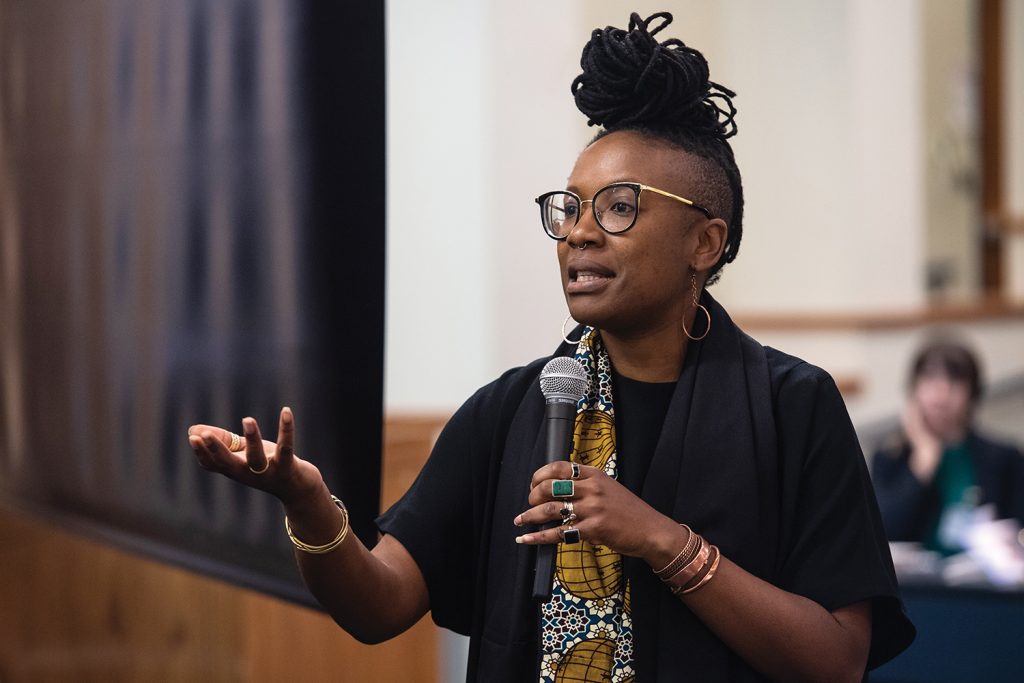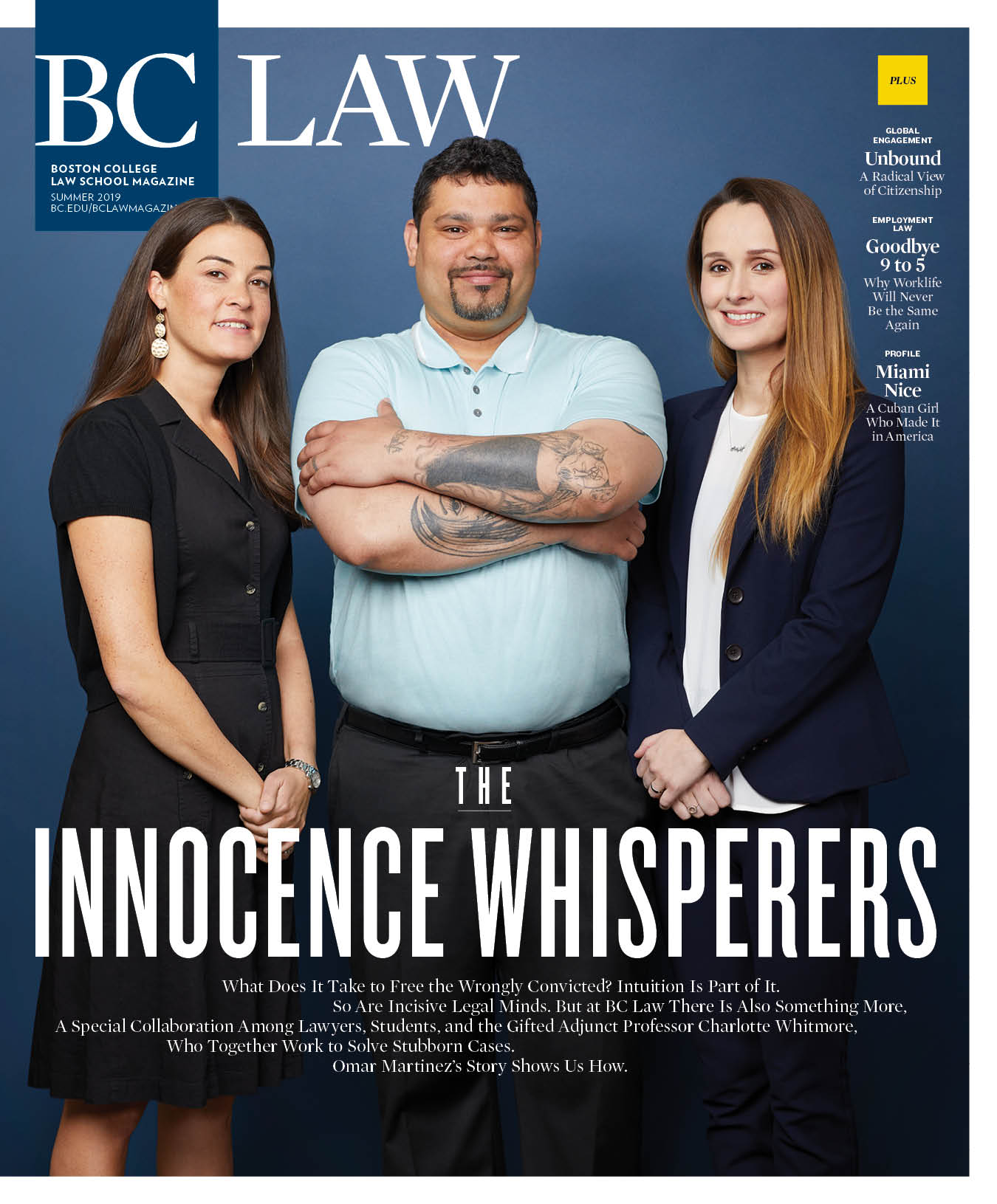When scholar E. Tendayi Achiumeopened a two-day global migration conference at BC Law last April, seven choice words in her keynote address summed up the scope of the gathering’s concerns. “Borders,” she said, “are a source of ethical conundrums.”
And conundrums revealed themselves to be plentiful in discussions among the 250 participants—lawyers and social workers who engage with immigrants, refugees, detainees, and their families—among them eminent scholar Marcelo Suarez-Orozco and noted humanitarians Sean Callahan and Thomas H. Smolich, SJ. The dozen or so conference topics included international approaches to migration control, whether migration helps or hurts the national labor market, new models of interdisciplinary collaboration, and immigrant rights and public benefits.
Achiume, an assistant law professor at the University of California-Los Angeles and the UN Special Rapporteur on Contemporary Forms of Racism, Racial Discrimination, Xenophobia, and Related Intolerance, explored the lasting impact of imperialism and colonialism on modern populations, a topic she called “De-Imperial Migration.” The situation has created an enduring political and economic interdependence between first and third world countries, she explained, leaving the once-subjugated still “bound and subordinate.” Given that relationship, she argued, the first world has no right to exclude the third world persons who are part of that relationship.
For much of the 20th century, freedom of movement was encouraged by the West, for economic reasons. Today, Americans are often encouraged to view non-Europeans as uncivilized, a means of stripping migrants of their identity. —E. Tendayi Achiume
She also observed that the immigration situation in America has not always been as it is today. To the contrary, she said, “for much of the 20th century, freedom of movement was encouraged by the West, for economic reasons.” Today, Americans are often encouraged to view non-Europeans as “uncivilized,” a means of “stripping migrants of their identity.”
Suárez-Orozco, the UCLA Wasserman Dean of the Graduate School of Education and Information Studies, gave a biological account of migration, calling it “an ancient human adaptation, encoded in our bodies.” Even in the modern era, he said, migration is “conspicuous of the human condition, a shared condition of our humanity.”
One of Suárez-Orozco’s more striking observations was the impact that migration has on children. Globally, one in eight migrants are children. One in every 200 children is a refugee, twice as many as a decade ago. Though large-scale migration is not random and is focused on the family, he said, for many children migration to a new country is paramount to “migration to a new family.”
During the second day of the conference, which was a joint effort of the Law School and Boston College’s School of Social Work, Callahan, president and CEO of Catholic Relief Services, and Father Smolich, international director of Catholic Relief Services, shared a panel on humanitarian responses to migration.
The latter immediately debunked the prevailing narrative about refugees, saying the problem lies not with them but with the systems and lack of leadership they confront. “I don’t think we have a refugee crisis,” he stressed. “I think we have a management crisis. I think we have a spiritual crisis, but 7 million people should be able to figure out a way of supporting and making sense of 68 million.”
Callahan agreed and added that we have a crisis of narrative. “The false narrative that’s going around is the real crisis that many of us face,” he said.



